Raymond A. Ortega Jr.
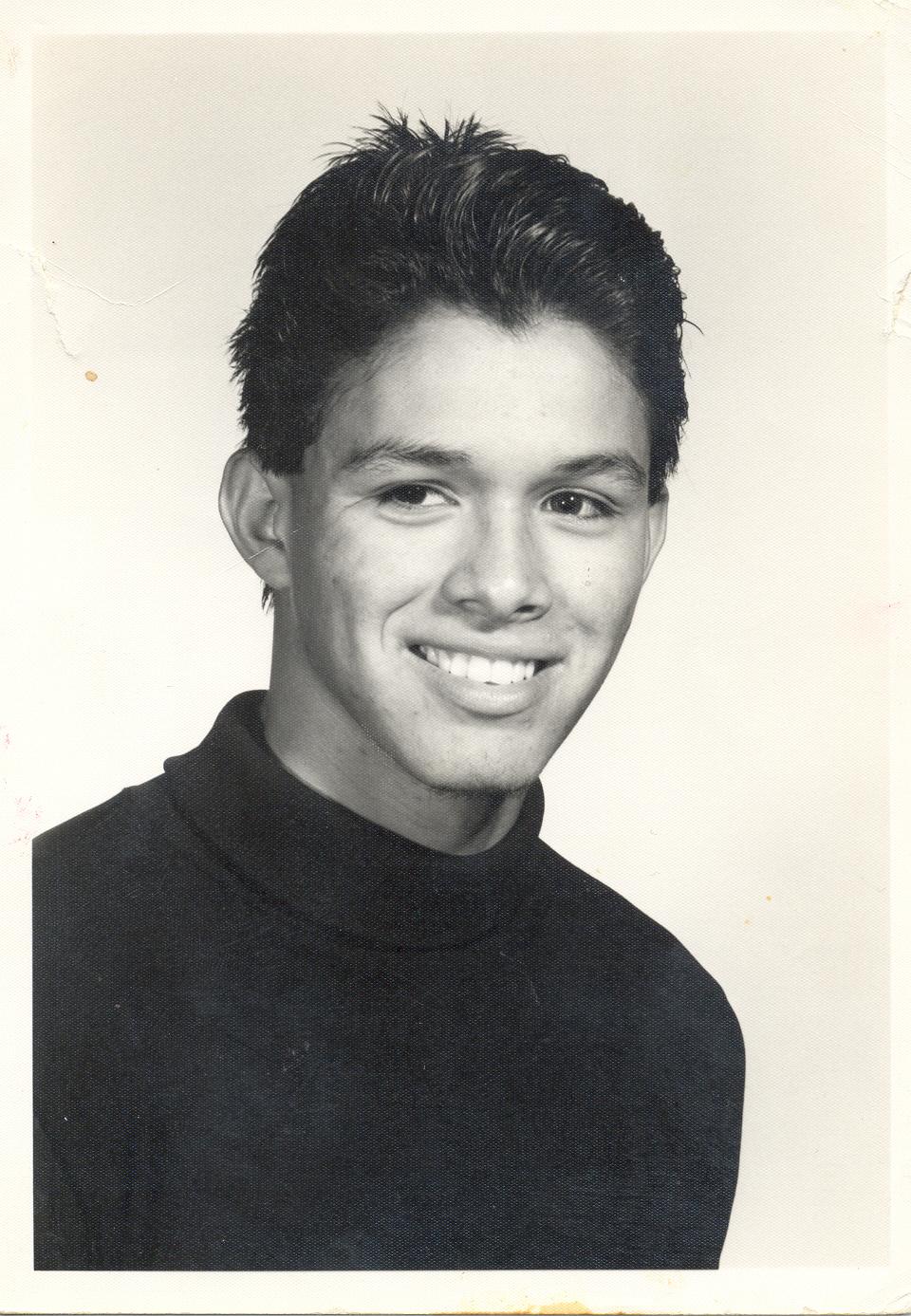

What else do you remember?
During the summers my neighborhood friends and I would go get a grocercy cart and collect glass bottles. Some we earned five cents and others three. Whatever the amount was we then would split the money so we could by ice cream that was about 25 cents for a whole ice cream bar.
What type of diciplinary actions did you face as a child?
The normal, my parents were the type to let you know who was in charge. They would break it down and explain to you why you were being punished. Although I wasn't an angel I never had the courage to do my parents wrong or make them feel that they were not doing their jobs as parents, however they were the ones putting food on the table and clothes on my back.
What was the economic status of your parents while you were growing up?
My parents were farmers, "people of the land". They grew all their own food. They raised pigs and cows and chickens and so they ate very well. Although were were poor finacially, I never felt that way because my brother, sister and myself always ate well and we never went hungry. I remember having to move on ocassion so my parents could maintain an income after they were layed off.
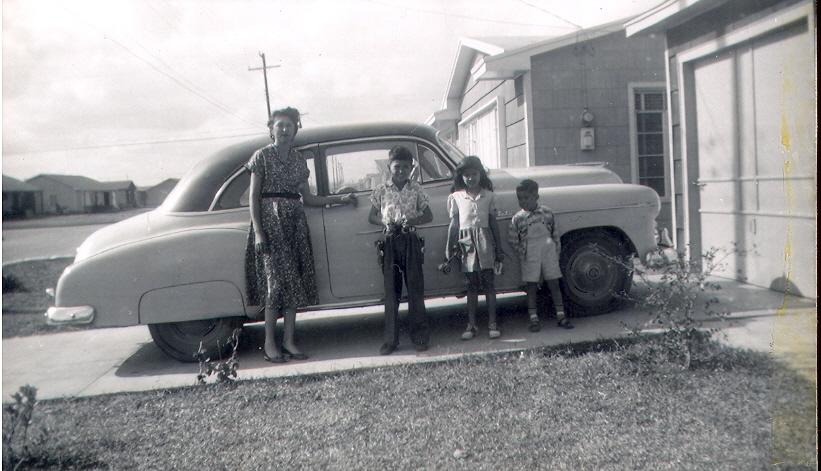
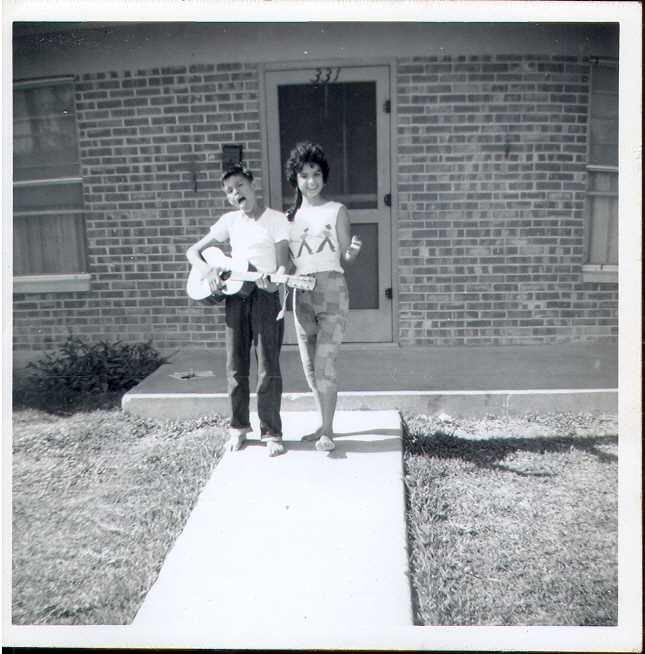
What religion did your family practice while you were growing up?
In the 1960's and 1970's, Being Catholic was the primary religion with Mexicans. It was normal to be Catholic.Many of the families we knew all practiced the same religion and if your weren't a Catholic you would stand out from everbody else.
As a young man Mexican-American in the 1960's what type of discrimination did you face? And how did you learn from it?
Well, as a Mexican, starting as a child I already knew how Mexicans were being treated. In school the white teachers were very cruel to the Mexicans. I knew that the Mexicans were not well off. Many had a small education such as high school and many did not even consider going to college. Many had no education at all. It was hard for Mexicans to get good jobs due to lack of skill and knowledge that were required for American jobs. So, I knew that many doors were shut on purpose. Not allowing myself and many Mexicans I knew to get a descent job that paid well. So my mentality was to prove many white people wrong and create a better life for myself.
How did your parents handle your issues with discrimination?
My parents taught us to respect the white people, to them it was a perfect race and they knew white people at that time never had to worry about discrimination and personal issues in school. My parents told us to never let them ruin what you have planned for your life. It is sad that at an early age you have to face the issue of someone hating you just beacause of your color and culture. Today i feel that it still goes on even today. One wonders when will it stop or is it a natural thing with certain races?
How did your parents feel about your going out with your friends?
My parents never had to worry about me because they knew I had street smarts they knew that if I was ever in a situation I would be able to stick up for myself. When it came to my brother I had to go with him so nobody would mess with him. As for my sister they did not allow her to have a boyfriend till she was eighteen years old.
What do you remember most about growing up in San Antonio?
When i was growing up, as a teenager, you were on your side of town "westside" and nobody looked at you different and nobody questioned what you did. But when you went to the northside, white people looked and stared wondering to themselves what you were doing on their side of town. Even if you went to eat on the northside you were waited of differntly in restaraunts.
What type of responsibilities were required of you as a child in your household?
I was required to clean the house, clean my room and many other chores like cut the grass, and help my dad with his outside duties.
What did you do for fun as a child?
Well we were too poor to have bikes but my neighborhood friends and I would share with each other and we would go riding around usually stop by the corner store to buy sodas and candies. All and all, I remember my childhood being very fun. My friends and I would collect glass empty bottles usually from milk or sodas and for the large ones's we'd get 10 cents and the smaller ones 5 cents.
What types of things did you do for fun as a teenager?
As a teenager friends and myself would hang out at the drive-in where we would meet girls..Ha Ha...As Mexican-Americans we felt most comfortable at the Mexican Theatres we never had to worry about conflict. Many of the theatres were located downtown such as the Aztec theatre and the Guadalupe Cultural Art Center. I also remember going to the Mission Driv-In.
What would consider you first job?
The first job I remember was with my father I was six years old. My father and I would go through the neighborhoods and cut their grass for every yard I helped my dad with he would give me a dollar. He would keep four and I would get one. I consider this my first job because this was the first time I remembered making money for myself.
How were Mexicans treated in your High School?
Well Mexicans were ninety five percent of the school so I guess you can put it together. I felt very safe at school cause I knew that my peers would never try to degrade me or put me down because of what I looked like.

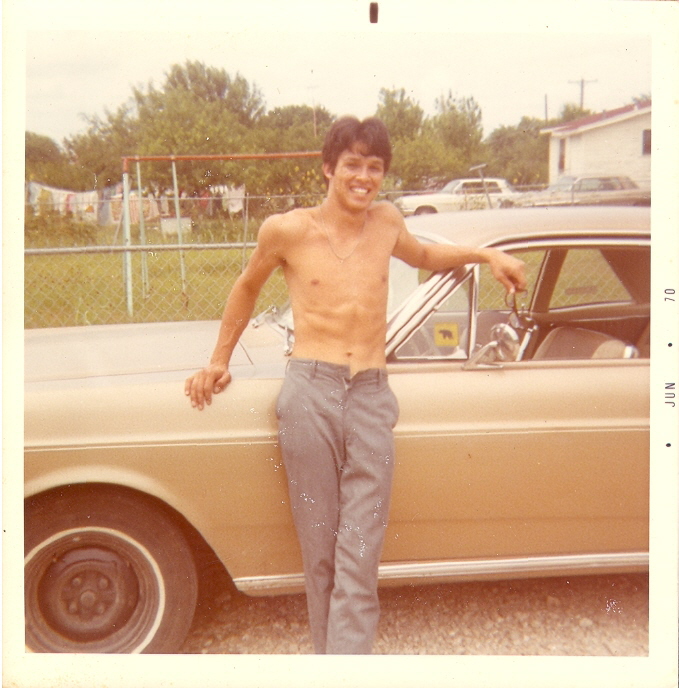
Did you ever have your own car? What kind?
I had a 1949 Ford, 1975 Chevy Malibu, 1979 Monte Carlo through out High School and just before I got married.
Where did you meet you wife?
Well this is a good story, While I going through college I was twenty five years old. I used to substitute at a nearby High School and I was her substitute teacher. She was an eighteen year old senior. Before I knew it, I was married on January 15, 1976 and my first born son came ten months later.
Where did you live when you first got married?
When I first got married I moved my wife and first son to a mobile home park off of Quintana Rd. We lived there for about seven years. My wife and I bought our first house just before "you" were born on 1984.

What do you like doing for fun these days?
Well, I love hunting deer, dove, and rabbit. I enjoy going to the movies with my family and watching television. I am also a big sports fan.
If you can change anything about you past what would it be?
Nothing, because then I would never have the met my wife and had my children and with that I treasure each day goes that I am able to see my family.
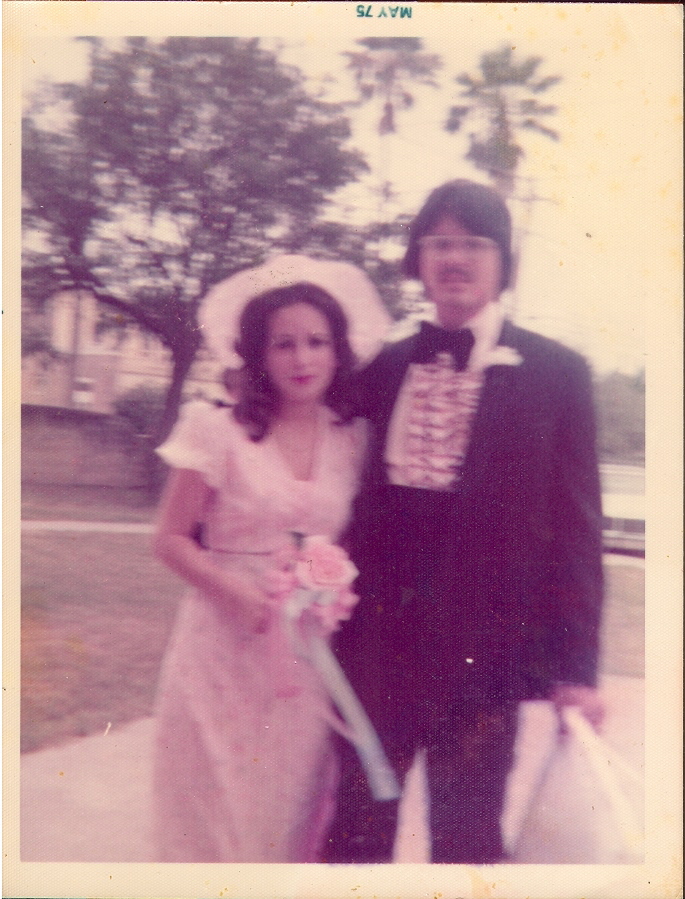
Is there anything else you would like to add to this interview?
My father joined the U.S Army in 1944, he faced more discrimination than anyone else I knew while I was growing up. It was punsihed for standing up to those who put him down and was a very firm believer in sticking up for yourself. The one thing I remember him telling the white soldiers was, "I'm a fourth generation U.S born American. I joined the Army to fight for my country and not to fight my own countrymen." Therefore I feel that that issues he faced are a good learning lesson. Despite what I faced as a child it does not equal to what my father experienced and therefore I learned a lot of what he had to go through. So when it comes down to my family and personal experiences I use the strength and belief he had throughout his life and help give my children the understanding of being a strong person.
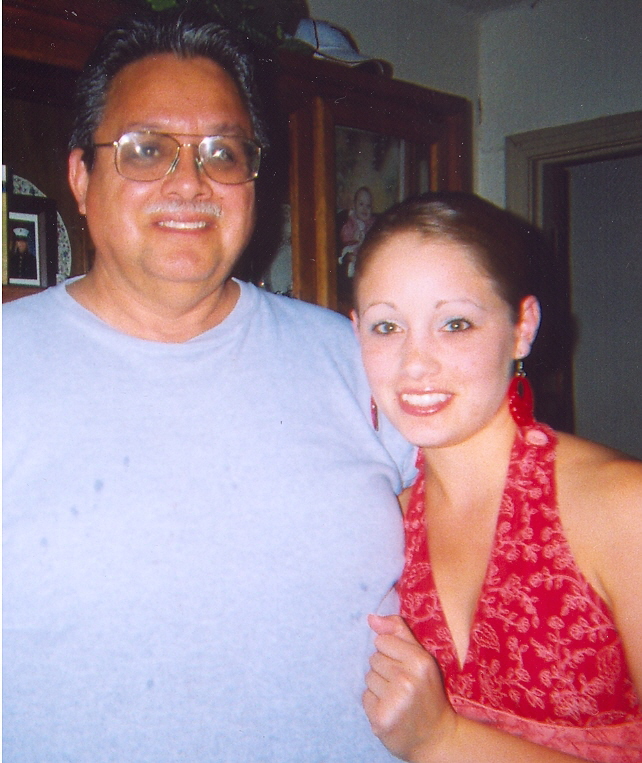
The Handbook of Texas Online is a multidisciplinary encyclopedia of Texas history, geography, and culture sponsored by the Texas State Historical Association and the General Libraries at UT-Austin. It was produced in partnership with the College of Liberal Arts and the General Libraries at the University of Texas at Austin. Copyright © The Texas State Historical Association.
The San Antonio River Walk. Raymond Ortega's first job just after graduating High School working for Casa Rio. RioSanAntonio.com Website by digiMuse © 2005 - 2007 Rio San Antonio Cruises, Inc., All rights reserved
Perry-Castañeda Library Map Collection. Geographical and historical maps of continents, countries, counties, cities; maps relating to history and current news events. University of Texas Libraries.Cost-of-Living Calculator. The calculator uses the Consumer Price Index to do the conversions between 1913 and the present. The source for the data is the Bureau of Labor Statistics. The Consumer Price Index reflects the cost of items relative to a specific year. The American Institute for Economic Research. P.O. Box 1000. Great Barrington, Massachusetts. 01230.
Small Town Texas Projects. Palo Alto College student Rosanne Ortega Rodriguez project in the city of San Antonio, Texas. This Small Town Project was completed in the Fall semester of 2007 as a requirement for Assistant Professor of Robert Hines's History 1302 class.
Photographs and/or documents on this website were provided by Raymond A. Ortega Jr. and Olga Ortega Bellg. .